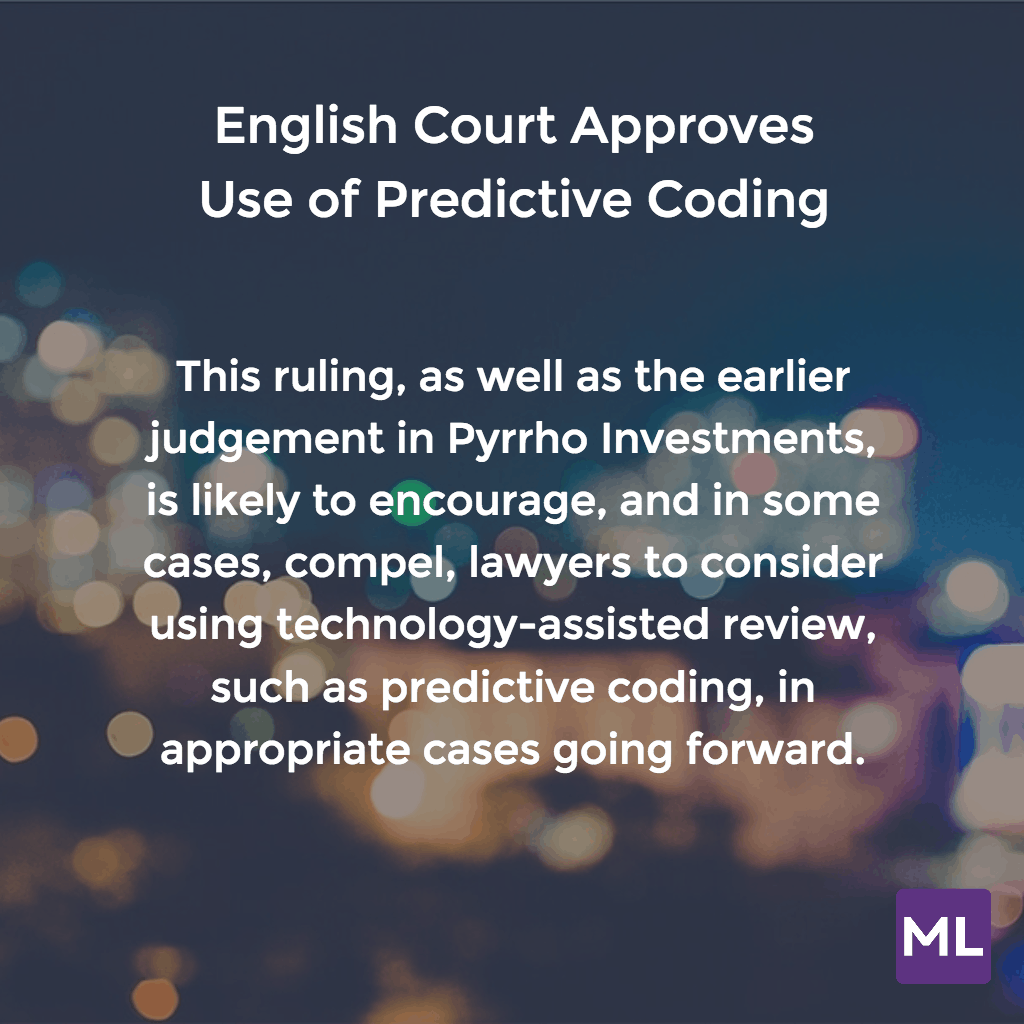ARCHIVED CONTENT
You are viewing ARCHIVED CONTENT released online between 1 April 2010 and 24 August 2018 or content that has been selectively archived and is no longer active. Content in this archive is NOT UPDATED, and links may not function.Extract from Tess Blair, Afzalah Sarwar, and David Waldron
Predictive coding involves training the relevant predictive coding software or technology to categorise each document in the whole document set as either relevant or not. This machine learning is achieved by a process in which a senior lawyer (who has mastered the issues in the case) reviews a sample set of documents for relevance. This sample set is then used to train the software, and through a process of iterative refinement (using further sample sets), an appropriate confidence level and margin of error is reached. Once the technology has been trained in this way, it is applied across the entire document set to identify relevant documents.
According to the respondent’s lawyers, counsel for BCA Trading referred the court to the factors cited in the Pyrrho Investments decision in favour of using predictive coding, noting that the majority of the factors also applied to the present case. The court ordered that predictive coding be used on this basis, according to the respondent’s lawyers.
Read the complete article at English Court Approves Use of Predictive Coding






















